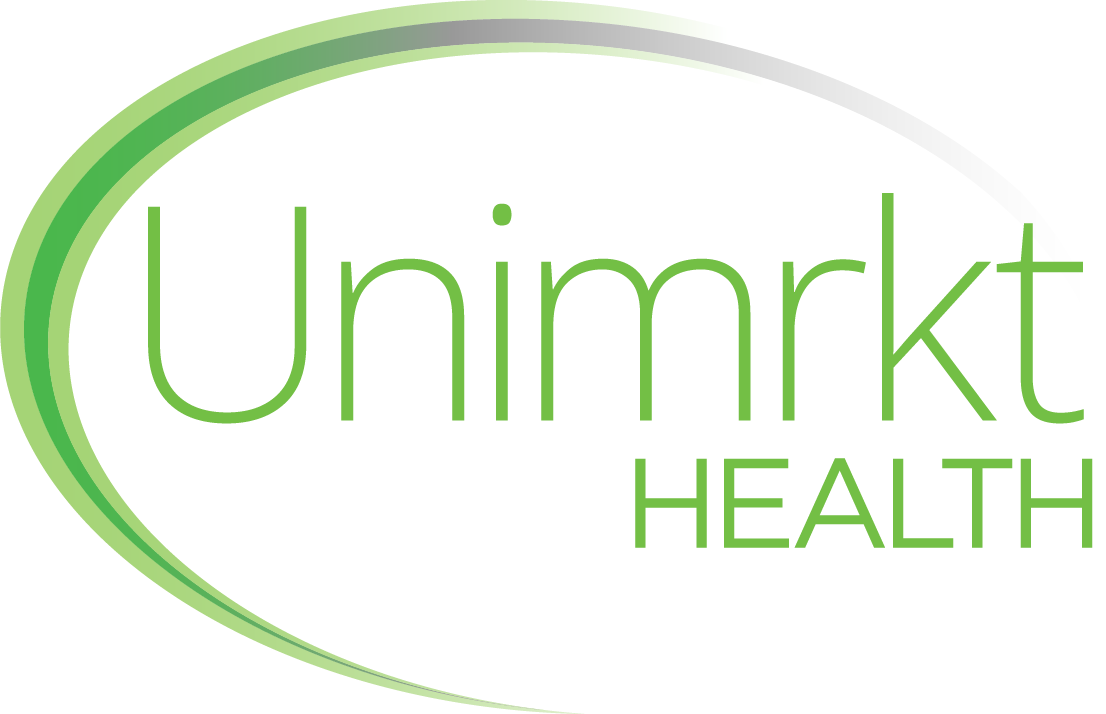Digital Healthcare Tools: A Cost-Saving Approach in the Sector
- Unimrkt Healthcare » Blog » Digital Healthcare Tools: A Cost-Saving Approach in the Sector
The healthcare industry is undergoing a seismic shift, thanks to the dramatic rise in the adoption of innovative, data-driven digital healthcare tools. Insights from a recent digital healthcare research report reveal that these advancements are not only addressing inefficiencies, but also making medical services more accessible and affordable. For healthcare organizations, embracing these technologies has become a necessity to stay relevant and harness their immense potential. From improving patient outcomes to optimizing operational costs, digital healthcare tools enable providers to deliver value-driven care while achieving significant cost savings on a global scale. This transformation is backed by comprehensive digital healthcare market research, underscoring the tools’ ability to drive positive change across diverse healthcare ecosystems. In today’s blog, we’ll discuss how these advancements are revolutionizing the industry and why ignoring the trends highlighted in digital health market research could mean falling behind in an increasingly competitive environment. The time to act is now—explore how digital healthcare tools are redefining the cost dynamics of the sector.
Potential Cost Saving Impact of Digital Healthcare Tools
Digital healthcare tools are reshaping the future of medicine. They are the present-day solution to creating a sustainable healthcare ecosystem. As the World Economic Forum’s Centre for Health and Healthcare launched the Digital Healthcare Transformation Initiative (which aims to elevate data-driven healthcare systems to improve efficiency and effectiveness in caring for people living with illness), digital healthcare solutions are presenting a cost-effective alternative to ballooning expenses of medical systems. The global healthcare sector generated 2.3 zettabytes of data (equivalent to over 2 trillion DVDs) but more than 95% of it remains underutilized. It’s forecasted to surge over the next seven years, and health data generation will outplace all other fields. A significant part of it comes from the anticipated use of 40 million health and fitness wearables. If utilized properly, this data can prove to be a savior for the sector. Here’s how digital healthcare tools can create a measurable impact:
Prevention Through Early Detection
Advanced technologies such as wearable devices, health apps, and AI-powered diagnostics provide real-time monitoring of critical health metrics like heart rate, blood sugar levels, and oxygen saturation. These tools empower early detection of chronic conditions such as hypertension, diabetes, or even heart disease. Early diagnosis not only prevents complications, but also significantly reduces long-term treatment costs. According to a digital healthcare research report, such preventive measures can cut healthcare expenses by up to 20%.
Streamlined Patient Management
Electronic health records (EHRs) and integrated healthcare management platforms are transforming patient data handling. These tools reduce reliance on cumbersome paperwork, optimize appointment scheduling, and ensure accurate medical histories are easily accessible. A 2023 digital healthcare research study found that hospitals leveraging modern EHR systems experienced a 15-20% drop in administrative costs and enhanced care coordination. Moreover, interoperability between systems allows seamless communication among care teams, improving the quality of care delivery.
Minimizing Hospital Visits
Telemedicine solutions, such as virtual consultations and online prescription management, allow patients to receive expert medical care from the comfort of their homes. This reduces the burden on physical hospital infrastructure and enhances accessibility for patients in remote areas. According to digital health market research, telehealth adoption has resulted in a 35% decrease in non-essential hospital visits, enabling healthcare providers to focus on critical cases while lowering costs.
Optimizing Treatment Plans with AI and Data Analytics
AI-powered platforms analyze vast amounts of medical data to recommend personalized treatment plans for patients. These insights help doctors make informed decisions, ensuring effective care without unnecessary tests or procedures. A study in digital healthcare market research noted that using AI in oncology significantly reduced treatment costs by identifying the most suitable therapies, resulting in better outcomes.
Enhanced Medication Adherence
Digital tools like mobile apps and smart pill dispensers remind patients to take their medications on time, reducing complications from missed doses. Improved medication adherence minimizes hospital readmissions, contributing to overall cost savings. Recent digital healthcare research highlighted that adherence technologies cut hospital readmission rates by up to 30%, reinforcing their role in cost-effective care.
Remote Monitoring for Chronic Diseases
Remote patient monitoring systems allow continuous tracking of patients with chronic conditions such as asthma, heart failure, and COPD. Real-time data transmission enables early intervention, preventing acute episodes that require hospitalization. This proactive approach can improve patient outcomes and reduce costs associated with emergency care.
Improving Accessibility with Mobile Health (mHealth) Applications
mHealth apps provide patients with tools to track their health, access health records, and connect with healthcare providers. They empower individuals to take an active role in managing their well-being while reducing the need for frequent clinic visits. mHealth adoption in underserved areas bridges the gap between patients and healthcare services, enhancing equity in care.
How Digital Healthcare Tools Drive Positive Outcomes While Saving Costs
Healthcare spending has skyrocketed globally, with the World Health Organization (WHO) reporting that countries spent $9 trillion on healthcare in 2020—an astounding 11% of the global gross domestic product. Over the last two decades, healthcare costs have more than doubled in real terms, creating an urgent need for cost-effective measures as governments and organizations grapple with budget constraints. Digital healthcare tools are proving to be game-changers, offering tangible solutions to curb costs while improving outcomes. AI-powered tools are revolutionizing diagnostics by accelerating the identification of diseases and conditions. For example, a hospital in Portugal leveraged artificial intelligence to halve diagnostic times, as reported by the World Economic Forum. This improvement not only enhances patient care but also reduces the costs associated with delayed or incorrect diagnoses. Digital healthcare tools such as electronic health records (EHRs) and automated billing systems simplify administrative workflows, cutting operational expenses significantly. On the other hand, telemedicine programs are redefining care delivery by minimizing the need for physical infrastructure and in-person consultations. In the U.S., a major healthcare network reported annual savings of $50 million after adopting telehealth services, showcasing the financial benefits of virtual care solutions. Telehealth also improves accessibility, reducing costs for both patients and providers. That’s not all. Digital tools like smart pill organizers and mobile reminders promote adherence to treatment plans, minimizing complications from missed medications. A recent digital healthcare research report indicated that improved medication adherence reduces hospital readmissions by 25-30%, saving millions in avoidable healthcare expenditures. The scalability of digital healthcare tools makes them an invaluable asset for developing nations where healthcare budgets are limited. mHealth apps, for example, bring affordable healthcare to rural and underserved areas, bridging gaps in access and reducing overall healthcare costs. The impact of digital healthcare innovations on the global healthcare ecosystem is undeniable. Far from being mere theoretical solutions, digital tools are already proving their worth as cost-saving strategies. Their broader adoption will not only mitigate rising healthcare expenses but also drive a new era of efficient, accessible, and patient-focused care.
We Can Help
The digital healthcare revolution is still in its early stages, with tremendous growth potential. As highlighted by a recent digital healthcare research report, the sector is expected to grow at a compound annual growth rate (CAGR) of 15%, driven by advancements in AI, IoT, and blockchain technologies. This growth will further reduce costs, improve patient care, and make quality healthcare accessible to all. Investing in these technologies will ensure that stakeholders can ensure better patient outcomes and cost savings. Ready to unlock the latest trends in digital healthcare research? Connect with us now! To make the most out of your digital healthcare market research endeavors, it’s crucial to work with reputable market research companies. If you are looking for someone with an impeccable track record of conducting digital healthcare market research, look no further than Unimrkt Healthcare. Throughout the years, we have consistently applied scientifically validated methodologies for research in the health industry, ensuring the delivery of actionable data through meticulous targeting of respondents. To learn more about how we can help you with your medical market research endeavors, call +91-124-424-5210, +91-9870-377-557, or email sales@unimrkthealth.com. You may also fill out our contact form, and our team of experts will assist you as soon as possible.
Recent Posts
- 10 Medical Online Survey Mistakes You Must Leave Behind in 2025
- How Qualitative Healthcare Research Can Accelerate Ethical AI Adoption
- Trust as a Growth Strategy: What Healthcare Leaders Can Learn From Business Market Analysis
- Mapping the Healthcare Value Chain: A Market Research Perspective
- Decoding Emotional Triggers in Treatment Choices: A Qualitative Approach
Archives
Quick Enquiry
Customer Service, We Make it Better
Related Posts:
Let's Connect
Please, fill in the form to get in touch!



